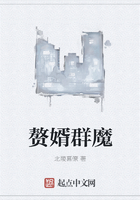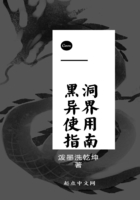Emma grew thinner, her cheeks paler, her facelonger. With her black hair, her large eyes, her aquiline nose, her birdlikewalk, and always silent now, did she not seem to be passing through lifescarcely touching it, and to bear on her brow the vague impress of some divinedestiny? She was so sad and so calm, at once so gentle and so reserved, thatnear her one felt oneself seized by an icy charm, as we shudder in churches atthe perfume of the flowers mingling with the cold of the marble. The otherseven did not escape from this seduction. The chemist said-
“She is a woman of great parts, who wouldn't be misplaced in a sub-prefecture.”
The housewives admired her economy, thepatients her politeness, the poor her charity.
But she was eaten up with desires, with rage,with hate. That dress with the narrow folds hid a distracted fear, of whosetorment those chaste lips said nothing. She was in love with Ldon, and soughtsolitude that she might with the more ease delight in his image. The sight ofhis form troubled the voluptuousness of this mediation. Emma thrilled at thesound of his step; then in his presence the emotion subsided, and afterwardsthere remained to her only an immense astonishment that ended in sorrow.
Léon did not know thatwhen he left her in despair she rose after he had gone to see him in thestreet. She concerned herself about his comings and goings; she watched hisface; she invented quite a history to find an excuse for going to his room. Thechemist's wife seemed happy to her to sleep under thesame roof, and her thoughts constantly centered upon this house, like the “Lion d'Or” pigeons,who came there to dip their red feet and white wings in its gutters. But themore Emma recognised her love, the more she crushed it down, that it might notbe evident, that she might make it less. She would have liked Léon to guess it, and she imagined chances, catastrophes that shouldfacilitate this. What restrained her was, no doubt, idleness and fear, and asense of shame also. She thought she had repulsed him too much, that the timewas past, that all was lost. Then, pride, and joy of being able to say toherself, “I am virtuous,” andto look at herself in the glass taking resigned poses, consoled her a littlefor the sacrifice she believed she was making.
Then the lusts of the flesh, the longing formoney, and the melancholy of passion all blended themselves into one suffering,and instead of turning her thoughts from it, she clave to it the more, urgingherself to pain, and seeking everywhere occasion for it. She was irritated byan ill-served dish or by a half-open door; bewailed the velvets she had not,the happiness she had missed, her too exalted dreams, her narrow home.
What exasperated her was that Charles did notseem to notice her anguish. His conviction that he was making her happy seemedto her an imbecile insult, and his sureness on this point ingratitude. Forwhose sake, then was she virtuous? Was it not for him, the obstacle to allfelicity, the cause of all misery, and, as it were, the sharp clasp of thatcomplex strap that bucked her in on all sides.
On him alone, then, she concentrated all thevarious hatreds that resulted from her boredom, and every effort to diminishonly augmented it; for this useless trouble was added to the other reasons fordespair, and contributed still more to the separation between them. Her owngentleness to herself made her rebel against him. Domestic mediocrity drove herto lewd fancies, marriage tenderness to adulterous desires. She would haveliked Charles to beat her, that she might have a better right to hate him, torevenge herself upon him. She was surprised sometimes at the atrociousconjectures that came into her thoughts, and she had to go on smiling, to hearrepeated to her at all hours that she was happy, to pretend to be happy, to letit be believed.
Yet she had loathing of this hypocrisy. Shewas seized with the temptation to flee somewhere with Léon to try a new life; but at once a vague chasm full of darknessopened within her soul.
“Besides, he no longer loves me,” she thought. “What is to become of me? Whathelp is to be hoped for, what consolation, what solace?”
She was left broken, breathless, inert,sobbing in a low voice, with flowing tears.
“Why don't you tellmaster?” the servant asked her when she came in duringthese crises.
“It is the nerves,”said Emma. “Do not speak to him of it; it would worryhim.”
“Ah! yes,” Fé1icité went on, “youare just like La Guérine, PéreGuerin's daughter, the fisherman at Pollet, that I usedto know at Dieppe before I came to you. She was so sad, so sad, to see herstanding upright on the threshold of her house, she seemed to you like awinding-sheet spread out before the door. Her illness, it appears, was a kindof fog that she had in her head, and the doctors could not do anything, nor thepriest either. When she was taken too bad she went off quite alone to thesea-shore, so that the customs officer, going his rounds, often found her lyingflat on her face, crying on the shingle. Then, after her marriage, it went off,they say.”
“But with me,”replied Emma, “it was after marriage that it began.”
Chapter 6
One evening when the window was open, andshe, sitting by it, had been watching Lestiboudois, the beadle, trimming thebox, she suddenly heard the Angelus ringing.
It was the beginning of April, when theprimroses are in bloom, and a warm wind blows over the flower-beds newlyturned, and the gardens, like women, seem to be getting ready for the summer fêtes. Through the bars of the arbour and away beyond, the river seenin the fields, meandering through the grass in wandering curves. The eveningvapours rose between the leafless poplars, touching their outlines with aviolet tint, paler and more transparent than a subtle gauze caught athwarttheir branches. In the distance cattle moved about; neither their steps northeir lowing could be heard; and the bell, still ringing through the air, keptup its peaceful lamentation.
With this repeated tinkling the thoughts of theyoung woman lost themselves in old memories of her youth and school-days. Sheremembered the great candlesticks that rose above the vases full of flowers onthe altar, and the tabernacle with its small columns. She would have liked tobe once more lost in the long line of white veils, marked off here and there bythe stuff black hoods of the good sisters bending over their prie-Dieus. Atmass on Sundays, when she looked up, she saw the gentle face of the Virgin amidthe blue smoke of the rising incense. Then she was moved; she felt herself weakand quite deserted, like the down of a bird whirled by the tempest, and it wasunconsciously that she went towards the church, included to no matter whatdevotions, so that her soul was absorbed and all existence lost in it.
On the Place she met Lestivoudois on his wayback, for, in order not to shorten his day's labour, hepreferred interrupting his work, then beginning it again, so that he rang theAngelus to suit his own convenience. Besides, the ringing over a little earlierwarned the lads of catechism hour.
Already a few who had arrived were playingmarbles on the stones of the cemetery. Others, astride the wall, swung theirlegs, kicking with their clogs the large nettles growing between the littleenclosure and the newest graves. This was the only green spot. All the rest wasbut stones, always covered with a fine powder, despite the vestry-broom.
The children in list shoes ran about there asif it were an enclosure made for them. The shouts of their voices could beheard through the humming of the bell. This grew less and less with theswinging of the great rope that, hanging from the top of the belfry, draggedits end on the ground. Swallows flitted to and fro uttering little cries, cutthe air with the edge of their wings, and swiftly returned to their yellownests under the tiles of the coping. At the end of the church a lamp wasburning, the wick of a night-light in a glass hung up. Its light from adistance looked like a white stain trembling in the oil. A long ray of the sunfell across the nave and seemed to darken the lower sides and the corners.
“Where is the curé?” asked Madame Bovary of one of the lads, who was amusing himself byshaking a swivel in a hole too large for it.
“He is just coming,”he answered.
And in fact the door of the presbyterygrated; Abbé Bournisien appeared; the children,pell-mell, fled into the church.
“These young scamps!”murmuxed the priest, “always the same!” Then, picking up a catechism all in rags that he had strnck with isfoot, “They respect nothing!”But as soon as he caught sight of Madame Bovary, “Excuseme,” he said; “I did notrecognise you.”
He thrust the catechism into his pocket, andstopped short, balancing the heavy vestry key between his two fingers.
The light of the setting sun that fell fullupon his face paled the. lasting of his cassock, shiny at the elbows,unravelled at the hem. Grease and tobacco stains followed along his broad chestthe lines of the buttons, and grew more numerous the farther they were from hisneckcloth, in which the massive folds of his red chin rested; this was dottedwith yellow spots, that disappeared beneath the coarse hair of his greyishbeard. He had just dined and was breathing noisily.
“How are you?” headded.
“Not well,” repliedEmma; “I am ill.”
“Well, and so am I,”answered the priest. “These first warm days weaken onemost remarkably, don't they? But, after all, we are bomto suffer, as St. Paul says. But what does Monsieur Bovary think of it?”
“He!” she said with agesture of contempt.
“What!” replied thegood fellow, quite astonished, “doesn't he prescribe something for you?”
“Ah!” said Emma, “it is no earthly remedy I need.”
But the curé fromtime to time looked into the church, where the kneeling boys were shoulderingone another, and tumbling over like packs of cards.
“I should like to know—” she went on.
“You look out, Riboudet,” cried the priest in an angry voice; “I'll warm your ears, you imp!” Then turning to Emma, “He's Boudet thecarpenter's son; his parents are well off, and let himdo just as he pleases. Yet he could learn quickly if he would, for he is verysharp. And so sometimes for a joke I call him Riboudet (like the road one takesto go to Maromme) and I even say “Mon Riboudet.' Ha! Ha! 'Mont Riboudet.' The other day I repeated that just to Monsignor, and he laughed atit; he condescended to laugh at it. And how is Monsieur Bovary?”
She seemed not to hear him. And he went on—
“Always very busy, no doubt; for he and I arecertainly the busiest people in the parish. But he is doctor of the body,” he added with a thick laugh, “and I of thesoul.”
She fixed her pleading eyes upon the priest. “Yes,” she said, “yousolace all sorrows.”
“Ah! don't talk to meof it, Madame Bovary. This morning I had to go to Bas-Diauville for a cow thatwas ill; they thought it was under a spell. All their cows, I don't know how it is-But pardon me! Longuemarre and Boudet! Bless me!Will you leave off?.”
And with a bound he ran into the church.
The boys were just then clustering round thelarge desk, climbing over the precentor's footstool,opening the missal; and others on tiptoe were just about to venture into theconfessional. But the priest suddenly distributed a shower of cuffs among them.Seizing them by the collars of their coats, he lifted them from the ground, anddeposited them on their knees on the stones of the choir, firmly, as if hemeant planting them there.
“Yes,” said he, whenhe returned to Emma, unfolding his large cotton handkerchief, one comer ofwhich he put between his teeth, “farmers are much to bepitied.”
“Others, too,” shereplied.
“Assuredly. Town-labourers, for example.”
“It is not they-”
“Pardon! I've thereknown poor mothers of families, virtuous women, I assure you, real saints, whowanted even bread.”
“But those,” repliedEmma, and the comers of her mouth twitched as she spoke, “those, Monsieur le Curé, who have bread andhave no-”
“Fire in the winter,”said the priest.
“Oh, what does that matter?”
“What! What does it matter? It seems to methat when one has firing and food-for, after all-”
“My God! my God!” shesighed.
“Do you feel unwell?”he asked, approaching her anxiously. “It isindigestion, no doubt? You must get home, Madame Bovary; drink a little tea,that will strengthen you, or else a glass of fresh water with a little moistsugar.”
“Why?” And she lookedlike one awaking from a dream.
“Well, you see, you were putting your hand toyour forehead. I thought you felt faint.” Then,bethinking himself, “But you were asking me something?What was it? I really don't remember.”
“I? Nothing! nothing!” repeated Emma.
And the glance she cast round her slowly fellupon the old man in the cassock. They looked at one another face to facewithout speaking.
“Then, Madame Bovary,” he said at last, “excuse me, but duty first,you know; I must look after my good-for-nothings. The first communion will soonbe upon us, and I fear we shall be behind after all. So after Ascension Day Ikeep them recta an extra hour every Wednesday. Poor children! One cannot leadthem too soon into the path of the Lord, as, moreover, he has himselfrecommended us to do by the mouth of his Divine Son. Good health to you,madame; my respects to your husband.”
And he went into the church making agenuflexion as soon as he reached the door.
Emma saw him disappear between the double rowof forms, walking with a heavy tread, his head a little bent over his shoulder,and with his two hands half-open behind him.
Then she turned on her heel all of one piece,like a statue on a pivot, and went homewards. But the loud voice of the priest,the clear voices of the boys still reached her ears, and went on behind her.
“Are you a Christian?”
“Yes, I am a Christian.”
“What is a Christian?”
“He who, being baptized-baptized-baptized-”
She went up the steps of the staircaseholding on to the banisters, and when she was in her room threw herself into anarm-chair.
The whitish light of the window-panes fellwith soft undulations. The furniture in its place seemed to have become moreimmobile, and to lose itself in the shadow as in an ocean of darkness. The firewas out, the clock went on ticking, and Emma vaguely marvelled at this calm ofall things while within herself was such tumult. But little Berthe was there,between the window and the work-table, tottering on her knitted shoes, andtrying to come to her mother to catch hold of the ends of her apron-strings.
“Leave me alone,”said the latter, putting her from her with her hand.
The little girl soon came up closer againsther knees, and leaning on them with her arms, she looked up with her large blueeyes, while a small thread of pure saliva dribbled from her lips on to the silkapron.
“Leave me alone,”repeated the young woman quite irritably.
Her face frightened the child, who began toscream.
“Will you leave me alone?” she said, pushing her with her elbow.
Berthe fell at the foot of the drawersagainst the brass handle, cutting her cheek, which began to bleed, against it.Madame Bovary sprang to lift her up, broke the bell-rope, called for theservant with all her might, and she was just going to curse herself whenCharles appeared. It was the dinner-hour; he had come home.
“Look, dear!” saidEmma, in a calm voice, “the little one fell down whileshe was playing, and has hurt herself.”
Charles reassured her; the case was not aserious one, and he went for some sticking plaster.
Madame Bovary did not go downstairs to thedining-room; she wished to remain alone to look after the child. Then watchingher sleep, the little anxiety she felt gradually wore off, and she seemed verystupid to herself, and very good to have been so worried just now at so little.Berthe, in fact, no longer sobbed. Her breathing now imperceptibly raised thecotton covering. Big tears lay in the corner of the half-closed eyelids,through whose lashes one could see two pale sunken pupils; the plaster stuck onher cheek drew the skin obliquely.
“It is very strange,”thought Emma, “how ugly this child is!”
When at eleven o'clockCharles came back from the chemist's shop, whither hehad gone after dinner to return the remainder of the sticking-plaster, he foundhis wife standing by the cradle.
“I assure you it'snothing.” he said, kissing her on the forehead. “Don't worry, my poor darling; you will makeyourself ill.”
He had stayed a long time at the chemist's. Although he had not seemed much moved, Homais, nevertheless, hadexerted himself to buoy him up, to “keep up hisspirits.” Then they had talked of the various dangersthat threaten childhood, of the carelessness of servants. Madame Homais knew somethingof it, having still upon her chest the marks left by a basin full of soup thata cook had formerly dropped on her pinafore, and her good parents took no endof trouble for her. The knives were not sharpened, nor the floors waxed; therewere iron gratings to the windows and strong bars across the fireplace; thelittle Homais, in spite of their spirit, could not stir without someonewatching them; at the slightest cold their father stuffed them with pectorals;and until they were turned four they all, without pity, had to wear waddedhead-protectors. This, it is true, was a fancy of Madame Homais'; her husband was inwardly afflicted at it. Fearing the possibleconsequences of such compression to the intellectual organs. He even went sofar as to say to her, “Do you want to make Caribs orBotocudos of them?”
Charles, however, had several times tried tointerrupt the conversation. “I should like to speak toyou,” he had whispered in the clerk's ear, who went upstairs in front of him.
“Can he suspect anything?” Léon asked himself. His heart beat, and heracked his brain with surmises.
At last, Charles, having shut the door, askedhim to see himself what would be the price at Rouen of a fine daguerreotypes.It was a sentimental surprise he intended for his wife, a delicateattention-his portrait in a frock-coat. But he wanted first to know “how much it would be.” The inquiries wouldnot put Monsieur Léon out, since he went to town almostevery week.
Why? Monsieur Homais suspected some “young man's affair”at the bottom of it, an intrigue. But he was mistaken. Léon was after no love-making. He was sadder than ever, as MadameLefrancois saw from the amount of food he left on his plate. To find out moreabout it she questioned the tax-collector. Binet answered roughly that he “wasn't paid by the police.”
All the same, his companion seemed verystrange to him, for Léon often threw himself back inhis chair, and stretching out his arms. Complained vaguely of life.
“It's because you don't take enough recreation,” said thecollector.
“What recreation?”
“If I were you I'dhave a lathe.”
“But I don't know howto turn,” answered the clerk.
“Ah! that's true,” said the other, rubbing his chin with an air of mingled contemptand satisfaction.
Léon was weary ofloving without any result; moreover he was beginning to feel that depressioncaused by the repetition of the same kind of life, when no interest inspiresand no hope sustains it. He was so bored with Yonville and its inhabitants,that the sight of certain persons, of certain houses, irritated him beyondendurance; and the chemist, good fellow though he was, was becoming absolutelyunbearable to him. Yet the prospect of a new condition of life frightened asmuch as it seduced him.
This apprehension soon changed into impatience,and then Paris from afar sounded its fanfare of masked balls with the laugh ofgrisettes. As he was to finish reading there, why not set out at once? Whatprevented him? And he began making home-preparations; he arranged hisoccupations beforehand. He furnished in his head an apartment. He would lead anartist's life there! He would take lessons on theguitar! He would have a dressing-gown, a Basque cap, blue velvet slippers! Heeven already was admiring two crossed foils over his chimney-piece, with adeath's head on the guitar above them.
The difficulty was the consent of his mother;nothing, however, seemed more reasonable. Even his employer advised him to goto some other chambers where he could advance more rapidly. Taking a middlecourse, then, Léon looked for some place as secondclerk at Rouen; found none, and at last wrote his mother a long letter full ofdetails, in which he set forth the reasons for going to live at Parisimmediately. She consented.
He did not hurry. Every day for a month Hivertcarried boxes, valises, parcels for him from Yonville to Rouen and from Rouento Yonville; and when Léon had packed up his wardrobe,had his three arm-chairs restuffed, bought a stock of neckties, in a word, hadmade more preparations than for a voyage around the world, he put it off fromweek to week, until he received a second letter from his mother urging him toleave, since he wanted to pass his examination before the vacation.
When the moment for the farewells had come,Madame Homais wept, Justin sobbed; Homais, as a man of nerve, concealed hisemotion; he wished to carry his friend's overcoathimself as far as the gate of the notary, who was taking Léon to Rouen in his carriage. The latter had just time to bidfarewell to Monsieur Bovary.
When he reached the head of the stairs, hestopped, he was so out of breath. As he came in, Madame Bovary arose hurriedly.
“It is I again!” saidLéon.
“I was sure of it!”
She bit her lips, and a rush of blood flowingunder her skin made her red from the roots of her hair to the top of hercollar. She remained standing, leaning with her shoulder against the wainscot.
“The doctor is not here?” he went on.
“He is out.” Sherepeated, “He is out.”
Then there was silence. They looked at oneanother and their thoughts, confounded in the same agony, clung close togetherlike two throbbing breasts.
“I should like to kiss Berthe,” said Léon.
Emma went down a few steps and called Félicité.
He threw one long look around him that tookin the walls, the decorations, the fireplace, as if to penetrate everything,carry away everything. But she returned, and the servant brought Berthe, whowas swinging a windmill roof downwards at the end of a string. Léon kissed her several times on the neck.
“Good-bye, poor child! good-bye, dear littleone! good-bye!” And he gave her back to her mother.
“Take her away,” shesaid.
They remained alone-Madame Bovary, her backturned, her face pressed against a window-pane; Léonheld his cap in his hand, knocking it softly against his thigh.
“It is going to rain,” said Emma.
“I have a cloak,” heanswered.
“Ah!”
She turned around, her chin lowered, herforehead bent forward. The light fell on it as on a piece of marble, to thecurve of the eyebrows, without one's being able toguess what Emma was seeing on the horizon or what she was thinking withinherself.
“Well, good-bye,” hesighed.
She raised her head with a quick movement.
“Yes, good-bye-go!”
They advanced towards each other; he held outhis hand; she hesitated.
“In the English fashion, then,” she said, giving her own hand wholly to him, and forcing a laugh.















